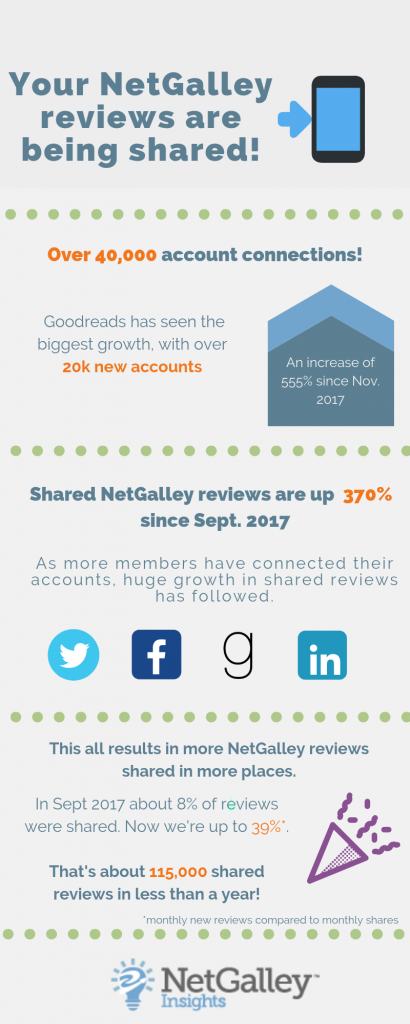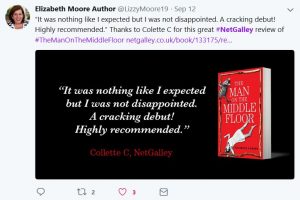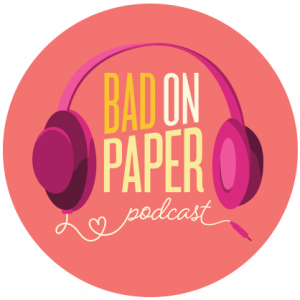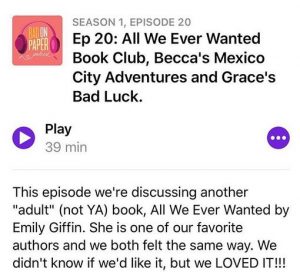Facts & Figures for Europe’s largest book market
NetGalley operates all over the world, serving the needs of global publishers. With dedicated NetGalley sites for Germany, France, and Japan, as well as the U.K., we are proud to support many different publishing ecosystems, all with their own unique characteristics. Today, we’re hearing from Karina Elm, who heads up customer relations and community management for NetGalley Germany. Below, she gives an overview of the German publishing landscape and book market.
Germany, well known to some for its great poets and thinkers (to others for its sausages, beer, football and the Autobahn), owns the largest book market in Europe. Struggling – just like in many other countries – with the rise of strong competitors called Netflix, Facebook, Instagram and others, the book is not yet forgotten. On the contrary: Even though the number of people buying books has decreased, individual people actually read more and the amount of titles published per year is still rising. Let’s have a closer look at some facts and figures from the year 2017 as well as some specialties of the German book market!
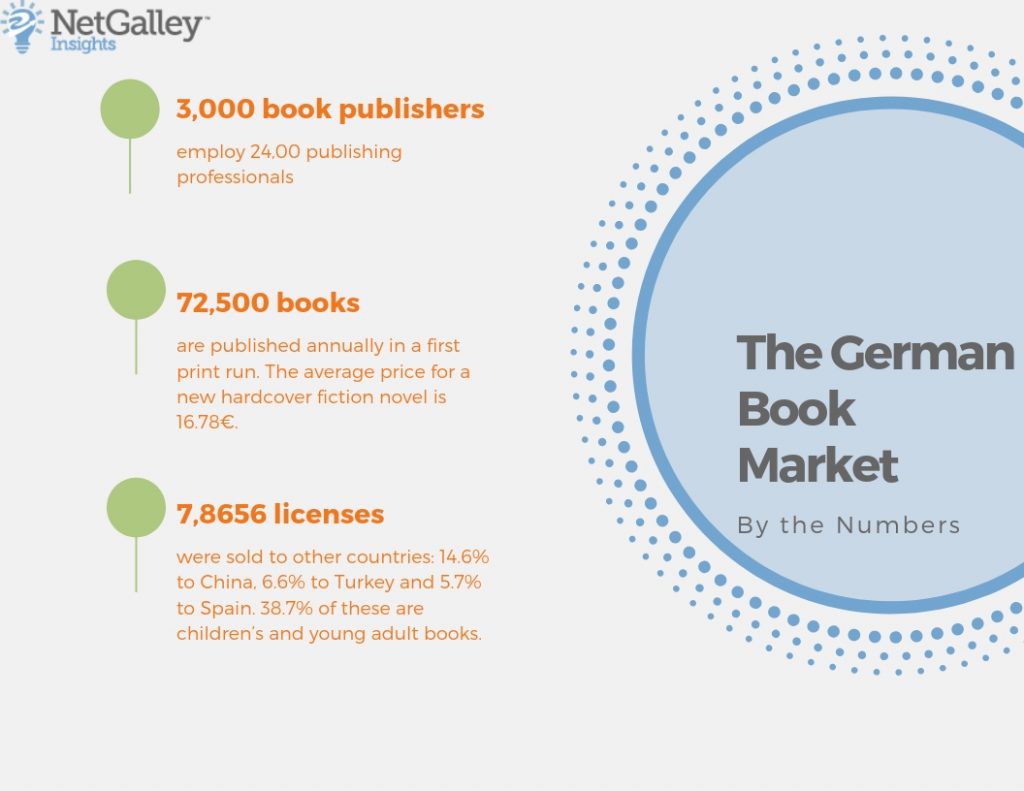
Bookselling: Bookstores and Fixed Prices
6,000 bookstores are selling books to readers, employing a total of 27,800 booksellers. 3,500 are small independent bookshops and 1,200 are part of bookstore chains. Berlin has the most bookstores in German – 236 stores for its 3.5 million inhabitants.
Many bookstores meet the challenge to compete with online sales platforms by selling coffee, hosting events (like public readings) and turning their shops into cultural meeting points. Since 2015, the Ger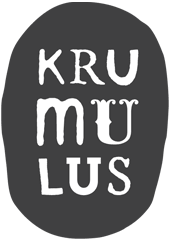 man Ministry of Culture honors the most innovative bookshops with the German Bookshop Award.
man Ministry of Culture honors the most innovative bookshops with the German Bookshop Award.
2018’s three best bookshops are Krumulus, Lessing und Kompanie, and Bittner-Buch.
Germany has fixed book prices. This means that publishers set a price for each book which is then mandatory for retailers. Only a limited number of discounts are allowed. Publishers can change the price, and the price for a different edition may vary. The tradition of fixed book prices goes back to the 19th century, the current law was introduced in 2002. Fixed prices are widely seen as a strong advantage of the German book market since they have benefits for both the industry as well as from a cultural perspective.
Booksellers of all sizes profit from a calculable margin on bestsellers, retailers compete not just with their prices but also with their service. It is beneficial for brick & mortar booksellers in the often destructive competition with online retailers and vendors outside the book industry. For publishers it means that they can cross-subsidise bestselling books with other works, allowing publishing decisions to be made on other aspects than just the selling potential sometimes. This helps support the work of lesser-known authors, as well as titles with complicated or expensive layouts. For readers, the fixed price system results in a large variety of books as well as publishing houses with different profiles. It also allows for a very efficient distribution system: If you order any book at your favorite bookstore you’d most likely be able to pick it up the next day. Last but not least, a strong network of bookshops offering a diverse and colorful range of books is an important part of a diverse and colorful society!
German Readers: Who they are and how they read
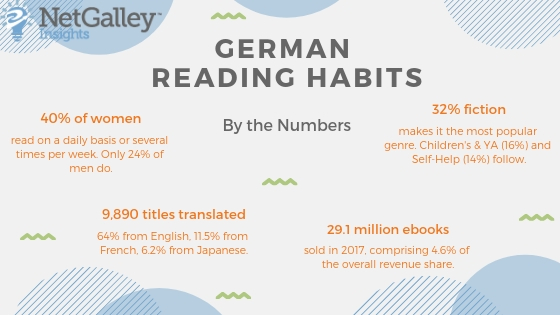
Just like in many countries, book bloggers are on the rise in Germany. By 2018, thousands of blogs about books, reviews and other bookish topics can be found online – the actual number is difficult to establish. The blogosphere is very active, well connected and spanning all genres and formats. Booktubers and Bookstagrammers are on a strong rise, too. By now, many publishers are working closely with individual bloggers, some even launched unique platforms for bloggers to read and review their titles. In 2017, the first German Book Blog Award was initiated by NetGalley Germany in cooperation with the German Publishers & Booksellers Association and rewarded the best German-language literary blogger as well as one booktuber. In 2018, the prize was given out in 9 categories, among them Romance, Literary Fiction, Suspense, Children’s Literature, Newcomers and Other Formats.
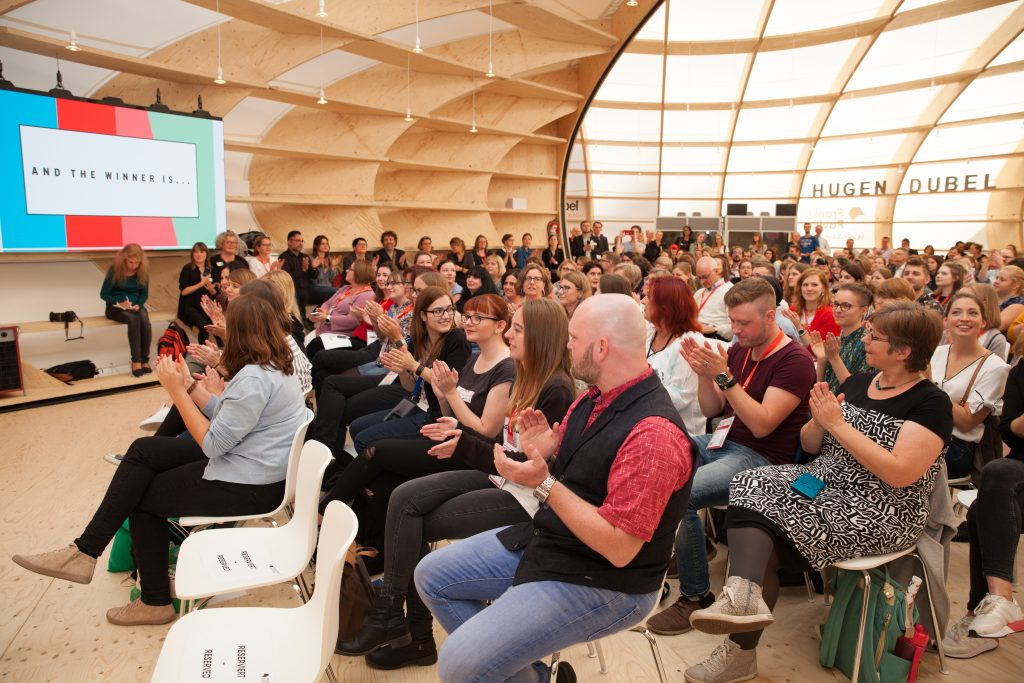
The Tolino is Germany’s own reading device for ebooks, competing with Amazon’s Kindle – and rising above it with a market share of 40% in 2017. Tolino is a strategic alliance between biggest German retailers to offer and produce e-readers and tablets. In January 2017, the Japanese Rakuten Kobo took over the shares of their former technical partner Deutsche Telekom. 2,000 bookstores sell books through the Tolino system and many independent booksellers are connected to it as well. Contrary to the Kindle, Tolino is an open system which means ebooks can be bought at any participating shop and read on any other device as well.
Book Industry Events, Awards, and Associations
Two book fairs are the German publishing industry’s yearly highlights and every book lover counts the days between them. The big one, Frankfurt Book Fair, is actually the world’s largest trade fair for books and has a long tradition, rooting back to 1454. Every year in mid-October, publishers, agents, tech companies, and content providers meet for business, trading, and international rights deals. Over the weekend, the fair opens for the public. More than 7,300 exhibitors from over 100 countries and more than 286,000 visitors took part in 2017.
In comparison to this, Leipzig Bookfair and it’s 208,000 visitors in 2017 is like a younger sister. It’s history goes back to the 17th century and it is a fair for the public: Visitors can attend all 4 days in order to discover new books and meet their favorite authors. There are hundreds of public readings at the fair but also throughout the whole city of Leipzig which transforms into a huge festival of reading during this time in March.
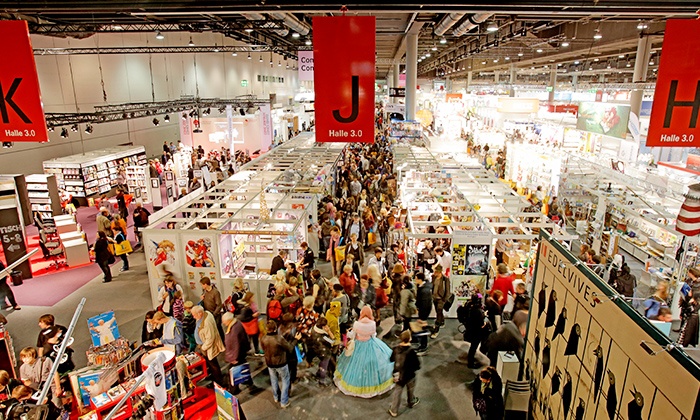
Germany has numerous literary awards for books and authors. The most famous of them is probably the German Book Prize which can be compared to the Man Booker Prize. Launched in 2005, it honors the best novel written in German in each publishing year and is awarded at the Frankfurt Book Fair in October. Most of its winners have already been translated into English, you can find a list here.
The most prestigious literary award in Germany is the Georg Büchner Prize which honors an author’s lifetime of work and was, for example, given to later Nobel Prize winners Günter Grass, Heinrich Böll, Elias Canetti and Elfriede Jelinek. A very atypical literary award is the Ingeborg Bachmann Prize. It honors an author for an unpublished literary excerpt only and is very publicly awarded during the Festival of German-Language Literature where the texts are read out loud and the jury comments directly, often very critical, while the audience watches in the room as well as in front of the TV across the whole county.
The German Publishers and Booksellers Association (Börsenverein des Deutschen Buchhandels), founded in Leipzig in 1825, represents all sectors of the book industry: Publishers, Retail Booksellers, Antiquarians and Wholesalers. They also organize – among other things – the Frankfurt Book Fair and the German Book Prize, and they are custodian of the fixed price system.
NetGalley Germany
NetGalley.de was launched in March 2016 (just in time for the Leipzig Book Fair!) and by now has more than 11,500 members, The first ones to adopt the platform were of course book bloggers who had already used NetGalley.com and were very excited to finally also find German publishers and titles available for them.
German publishers by then were working with their own bloggers already and saw NetGalley as a platform to use it in their communication with those bloggers, and to widen th
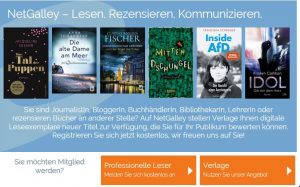
eir network. However, a few adventurous German publishers started sending the NetGalley widget to their network of booksellers, as well. It was a big transformation of workflows that have existed for many, many years (and we all know
how painful this can be) but it was worth it: We now receive excited and very happy feedback from both publishers who followed this example, as well as from booksellers, telling us how much easier their daily work has become.
The growing implementation of NetGalley in publishers’ work with booksellers has resulted in the following division of member types, very special for the German market: As of October 2018, 47% of the German speaking members are reviewers, 43% booksellers, 5% media and 5% librarians and educators. Their favorite genres are Fiction (45%), Teens and YA (40%), Thrillers & Crime (37%), Fantasy & Sci-Fi (35%) and Romance (25%). During an average month in 2018, more than 26,000 galleys were sent out through NetGalley.de, and members provided over 5,000 pieces of Feedback.
Do you publish in German? Use NetGalley.de to reach out to our avid community of professional readers, promoting your tiles to German readers! I would be very happy to hear from you via karina.elm@netgalley.com.
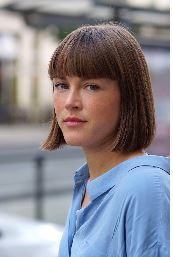
Karina Elm is Customer Relations and Community Manager at NetGalley Germany – and a huge bookaholic. After studying Comparative Literature, she worked for Ullstein Publishers as part of the team around digital imprints Midnight and Forever, and as the online marketing manager at Clear Canvas, an online marketing agency in Berlin. Karina Elm is initiator and driving force behind the German Book Blog Award which launched in 2017 and has been teaching a class at the Free University of Berlin about online reading communities in 2018.

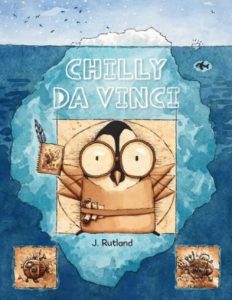

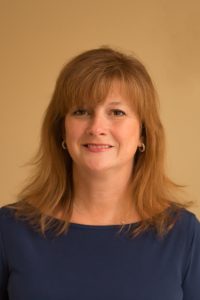
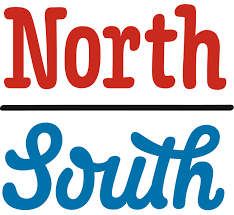
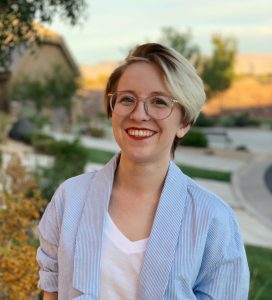
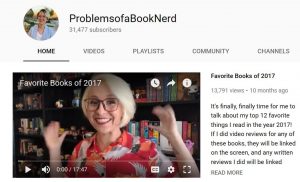
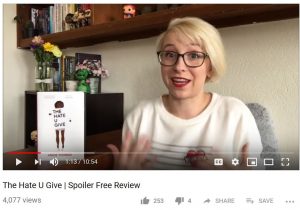
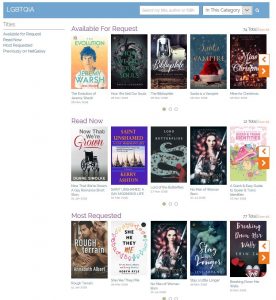


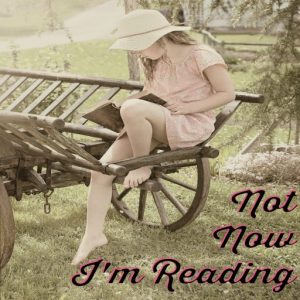 What do you think is unique about podcasting as a medium for book lovers/cultural commentary?
What do you think is unique about podcasting as a medium for book lovers/cultural commentary?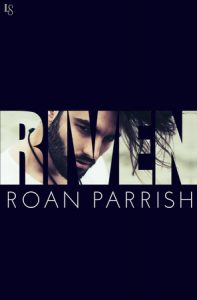
 Tell us about your library’s community, and the patrons who use your services
Tell us about your library’s community, and the patrons who use your services